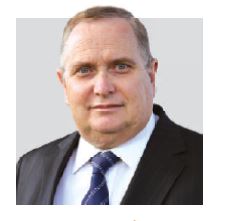From the value of education to asking the right questions, here are some seasoned brokers' tips

From the value of education to asking the right questions, here are some seasoned brokers' tips

Finance broker
Citadel Capital Solutions
“There’s a lot more involved [in commercial broking] compared to residential mortgage broking, and the market is a lot smaller. The process is far more strenuous. It requires a lot more time and effort to convert, from the initial phone conversation to funding; not to mention all the ratios needed when working on a complex commercial deal.
“A degree in economics or accounting would come in handy to help you better understand such things as liquidity, management efficiency, capital structure, profitability and more.
“That said, SME customers are unique and stickier, compared with your home loan customers. If you set them up correctly from the beginning, future transactions will be a lot easier.”

Managing director
AAA Mortgages
“Leaving AGC (Westpac) to go on my own was daunting to say the least. To this day, my wife still says we lived on baked beans for the first six months. “When I started as a commercial broker, I thought interest rate was a client’s main concern, so I would do all I could to satisfy that wish – sometimes successfully, sometimes not. “From that experience, I started asking clients more questions: How soon do they need the settlement? Would they pay a higher interest rate for a no-fuss result? “What a revelation! My conversion rate went from 50% to over 80%. You see, the terms and speed of any approval are just as important as the rate.”

Mortgage broker
Finance Solutions (WA)
“Brokers starting out in commercial need to understand the amount of additional work that’s required to gather data for a commercial loan, and the additional expertise they must have in other areas. “What is lacking at the moment is a dedicated commercial lending course. There’s the diploma course, but that really just covers complex broking skills; it doesn’t teach a lot about commercial loan products and the different types of commercial properties a broker might be called on to finance. “The best advice I can give someone now is to do your commercial accreditation with at least half-a-dozen commercial lenders so you can pick up something different from each one.”
The Commercial & Asset Finance Brokers Association (CAFBA) has launched a new course to attract and train new recruits on the basics of commercial and equipment finance. The course, Certificate IV in Financial Services: Commercial and Equipment Finance, was launched in April and is part of CAFBA’s overall strategy to further professionalise commercial finance broking, develop its education program, and attract more diverse entrants into the profession. “The demand for educational programs specific to the needs of commercial – not consumer – finance brokers is high. New programs will create multiple educational routes into and career pathways through the profession,” CAFBA says.



